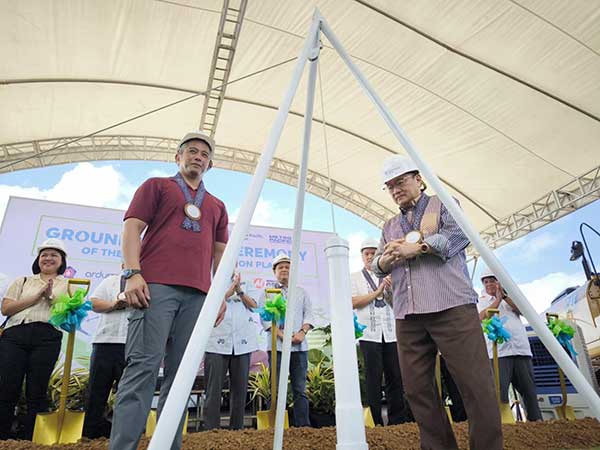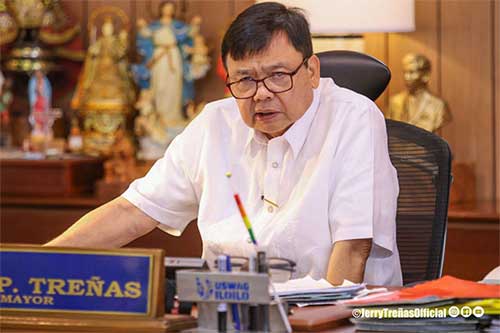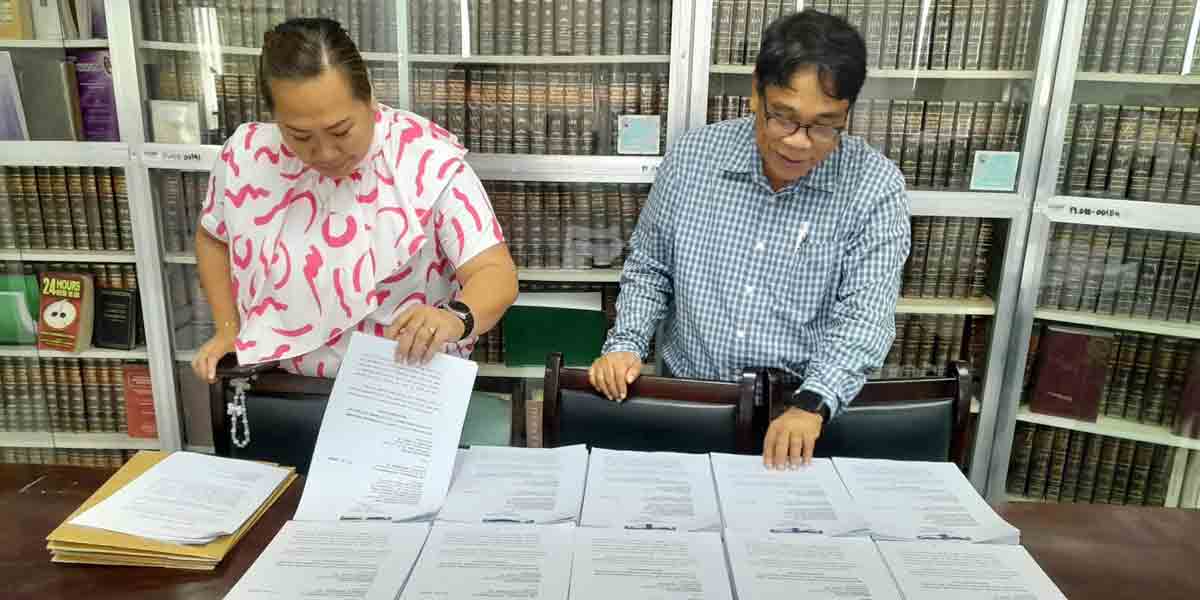
By Mariela Angella Oladive
Metro Pacific Water (MPW) officially broke ground on the Metro Iloilo Desalination Facility, the largest desalination plant in the Philippines, on Feb. 21 in Barangay Ingore, La Paz, Iloilo City.
The PHP5.5-billion facility will produce 66,500 cubic meters of potable water per day, benefiting more than 400,000 residents.
It will use reverse osmosis technology to convert saltwater into drinking water, reducing Iloilo’s reliance on freshwater sources and ensuring a stable water supply even during droughts.
MPW President Cristopher Andrew Pangilinan emphasized the project’s role in sustaining Iloilo’s rapid urbanization.
“MPW’s commitment to providing sustainable water solutions is at the heart of this project. It underscores our dedication to supporting Iloilo’s rapid growth and development,” Pangilinan said.
He added that the facility will ensure water security for residential, commercial, and industrial users, supporting Iloilo’s economic expansion.
Iloilo City Mayor Jerry Treñas lauded the project as a transformative investment.
“Investing in sustainable infrastructure like this desalination plant is essential, not only for meeting the needs of today but also for the future. This plant will ensure that as Iloilo City continues to grow, we can provide a consistent and dependable water supply for all residents,” he said.
He underscored the project’s alignment with Sustainable Development Goal No. 6, which advocates for clean water and sanitation for all.
Similarly, Iloilo Gov. Arthur Defensor Jr. hailed the facility as a game-changer for the province.
“This not only fulfills a fundamental need for the city and province, but it is a game-changer for us. We never expected it, but now that we have it here, we want to see more of MPW in other areas,” he said.
Local Water Utilities Administration (LWUA) Administrator Jose Moises “Joy” Salonga also highlighted the significance of MPW’s decision to pursue desalination.
“Today marks the triumph of technology and life over adversity and scarcity. Coming from the water sector, we know that 98% of the world’s water is saltwater, 2% is potable, and only 0.8% of that is accessible. This is why I want to highlight the importance of this facility,” he said.
He noted that while most water districts and bulk water developers rely on the 0.8% of available potable water, MPW took the more challenging route by harnessing non-potable saltwater.
“With the technology MPW is bringing to Iloilo, it will help sustain the city’s growth, secure water services for the Metro Iloilo Water District and nearby municipalities, and support community development. We are proud to endorse and support this initiative,” Salonga added.
A Model for Other Cities
Department of the Interior and Local Government (DILG) Secretary Juanito Victor Remulla, the event’s keynote speaker, praised Iloilo’s rapid development and governance.
He recognized Iloilo as a model city and one of the fastest-growing and most progressive areas in the country.
He also cited the city’s exemplary governance as a key factor in its economic success.
The desalination facility is a joint project between MPW, French water management company SUEZ, and JEMCO.
SUEZ, which has 50 years of expertise in seawater desalination, will oversee the plant’s construction and operation.
“Our first task is to design the facility, then move to construction and initial operations before eventually transferring it to local communities,” said Farchad Kaviani, SUEZ’s managing director for Southeast Asia.
Metro Pacific Iloilo Water Chief Operating Officer David Berba said the facility is expected to be operational by the first quarter of 2027, subject to regulatory approvals at both the local and national levels.
Regarding water tariffs, he assured that MPW will comply with LWUA-approved pricing.
“The final pricing is not yet set, but we will follow LWUA regulations to ensure affordability for residents. Rates will vary based on domestic and commercial pricing,” he explained.
The project sets a precedent for other water-scarce regions in the country, offering a scalable model for desalination technology.
MPW is a wholly owned subsidiary of Metro Pacific Investments Corp. (MPIC), the leading infrastructure holding company in the Philippines.






















